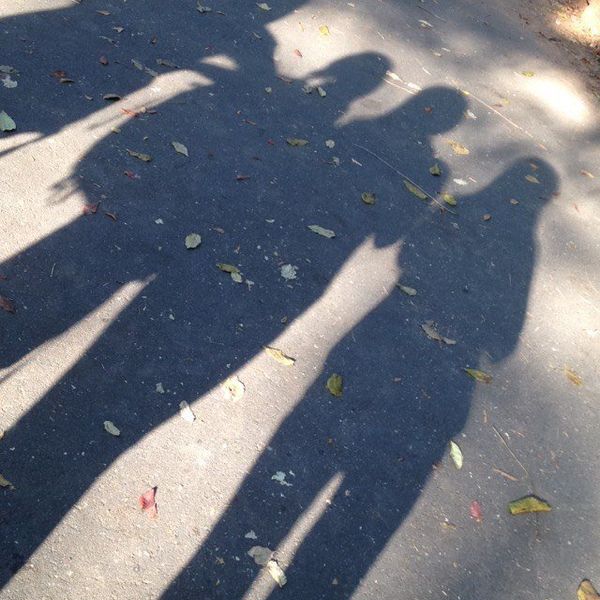Today some 46 million Americans can claim German ancestry. The difference is, very few of them do.... Whatever verstige of German America that remained after the 1910s was wiped out by similar pressures in World War II, not to mention the shame that came with German identity after it. - Erik Kirschbaum, New York Times
Prior to World War I, the United States had an enormous population of German inhabitants in New York City, giving New York the third highest population of German-speaking citizens, after Vienna and Berlin. Not only was the language popular throughout the country, but the culture spread as well. However, after America entered WWI, German-Americans were constantly accused of being spies or traitors, causing many of them to either go into hiding or change their surnames and abandon their heritage all together.
Today, a small number of German-Americans are taking pride in their heritage. It is upsetting that, even after all these years, so many Americans are hesitant to embrace their heritage, while at times attempting to deny it.
I sat down with German professor Georg Wieger from the University of Montana about what caused him to come to Montana, cultural differences between his birthplace and current city, as well as his take on being proud of his German identity. Professor Wieger comes from Vienna, Austria and teaches entry level German.
Corri Smith: What steps led to you teaching at the University of Montana?
Georg Wieger: Actually, I didn't choose the University of Montana; my program sponsor is Fulbright and they told me to go to the University of Montana. They just asked me if there were any specific regions I would like to teach in and I told them I'm fine with any region; I'm not particular. But I like it very much here, it's similar to my country.
CS: What is it like teaching, not only in a new country, but in your secondary language?
GW: Well, I studied English in Austria so the language is not that new to me; because of that I don't have a severe problem with the lanuage.
CS: What differs, in terms of culture, between your hometown and Missoula?
GW: I had to attend several lectures on certain issues and topics that are very heavily debated in the United States, such as sexual harassment or discrimination. In Austria, I don't think that you would be exposed to these kinds of lectures, or maybe not in this intensity. Americans are very aware of these sensitive issues. It was very, very new and also a bit frightening to me because this is not something we actually have to discuss in Austria.
CS: What is the importance of foreign language?
GW: To be exposed to authentic language. I mean, teaching a language in a classroom, I would say, is very artificial because this is not normally how human beings pick up a language. If you're a child you don't have to study grammar or vocabulary, you just imitate your parents. The best way to learn a language is to actually go abroad and study there. I would recommend going to a pub or meeting some friends that might speak the language so that you can collect some impressions on whether or not you like the sound of the language.
CS: What would you say to students who are intimidated to take a foreign language?
GW: Well, you could tell him or her that when you learn a new language you also learn a new world; you can meet other people and you can see things differently because a language also expresses a different world view. So, actually, I think that it has more to do with excitement than with intimidation; of course if you only focus on grammar and so on they might get intimidated but you should put the focus on the other things [language, culture, and so on.]
CS: There is a lot of talk about making English the national language of the United States. Any thoughts on that?
GW: If you say that English is the official language then [people] might feel disadvantaged because there are also a lot of Spanish speaking people as well. I'm not sure whether or not this is so important to say that English now becomes the official language of the United States because many people speak English here, even if it is not their native tongue. You have to use English to work and go to school, to read newspapers ... so I don't know whether or not it's a real problem because I assume that the vast majority of people speak English.
CS: A recent article in the New York Times claimed that some 46 million Americans can claim German ancestry, but most do not. Why do you think that German culture has disappeared?
GW: In Germany or Austria, many people are also patriotic but have a problem with saying "I am German" because of the things that happened in World War II, and I think this might be the main reason in this case too.
CS: Do you think know there's a way to change that?
GW: Not feeling guilty to be a German or an Austrian, but still not forgetting [the events of World War II] because that shouldn't happen again.
There is still hope for German-American culture. Foreign language can bring an entirely new culture to a city, as we have seen time and time again in our very own backyard. Perhaps if we continue to encourage students to take part in a foreign language and reach out to exchange students, we could see the diversity of cultures in Missoula grow. In this case, events like Missoula's German Fest could easily spark curiosity in those who have some form of German ancestry, enough to where these individuals may feel encouraged to wonder about their heritage, or be proud of it again.





















